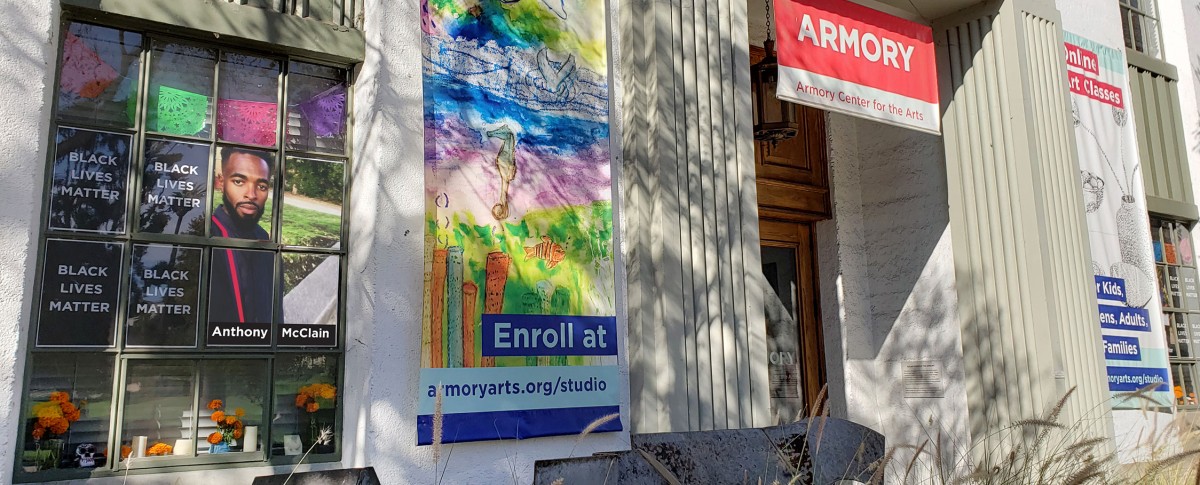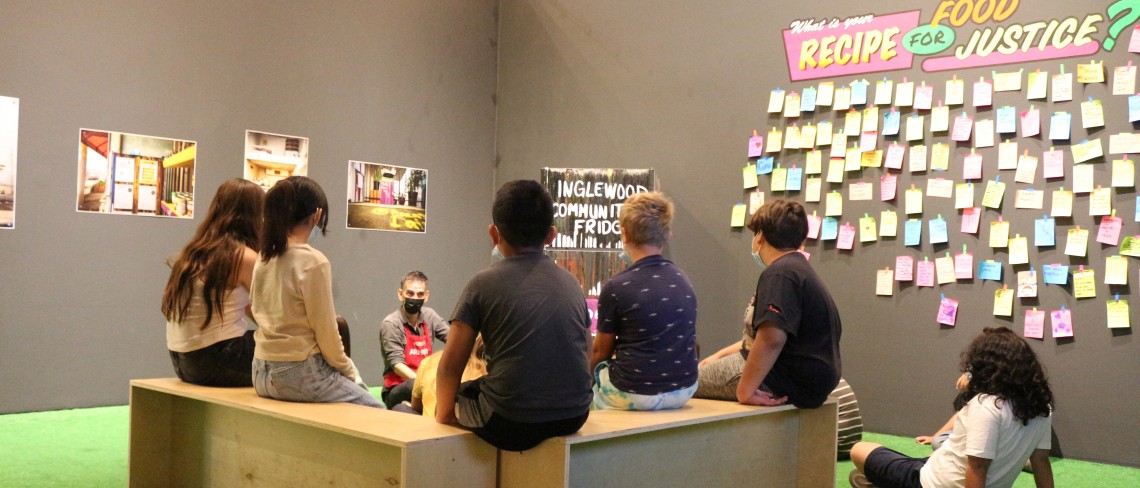Armory Cultural Equity & Inclusion
Land Acknowledgement
Armory Center for the Arts in Pasadena acknowledges our presence on the traditional, ancestral, and unceded territory of the Tongva peoples, whom we recognize as the traditional caretakers as well as the current and future inhabitants of the land we occupy. We offer our deepest respect to Tongva elders past and present.
Armory Cultural Equity & Inclusion Plan
September 2019
Armory Center for the Arts builds on the power of art to transform lives and communities through creating, teaching, and presenting the arts. We believe that the arts and arts education are essential components of a well-rounded human experience and a healthy community.[1]
Founded in 1989, the Armory has a respected contemporary art exhibitions program and offers artist-taught classes for children, teens, families, and adults. The Armory’s main campus in Old Pasadena is a community hub with ample space for art studios, events, and galleries. The unique floor plan encourages ideas to flow freely among artists, teachers, and students. Some members of the Armory community are system-impacted or impacted by systemic incarceration or foster care, and may experience barriers to accessing our on-site programs. The majority of our educational experiences are off-site throughout Pasadena and Los Angeles County in low-income system-impacted neighborhoods. These experiences include in-school instruction for K-12 students and year-round, free programs at libraries, community organizations, parks, recreation centers, and juvenile detention facilities.
We are dedicated to providing a safe, creative, inclusive, and positive experience for everyone, regardless of race, ethnicity, national origin, indigenous heritage, religious background, gender expression, developing identities, sexual orientation, age, physical ability, socioeconomic background, immigration status, or system impacted experiences.
We welcome people of multiple identities who face oppression. We acknowledge that institutional privilege can contribute to oppression, so we will leverage that privilege to create a more just world. We are committed to respectfully learning together in community from all unique experiences, points of view, and backgrounds.
We recognize that unquestioned assumptions hinder belonging, and that achieving cultural equity and inclusion is a continual process of challenging conversations, focused intention, and deep reflection. For this reason, we value a culture of sensitive listening, mutually beneficial collaboration, and a genuine interest in other points of view.
We pledge to build diverse leadership in our board, staff, faculty, committees, and advisory bodies. Ensuring cultural equity and inclusion within our organization will contribute to our community’s well-being, spirit of abundance, curiosity, generosity, and joy. This policy was formed with input from Armory staff and faculty, and advised by a nine-person committee comprised of staff, board, and a faculty representative. This is a living document that will guide the organization. It is the responsibility of each staff, faculty, and board member to implement and operationalize the policy and will inform a 2-year Cultural Equity Plan.
Glossary of Terms
Equity
Equity refers to the existence of systems, protocols, practices, and policies that allow everyone to be treated fairly within an organization. Equity is closely tied to actions and results. [2]
Cultural Equity
Cultural equity embodies the values, policies, and practices that ensure that all people [...] are represented in the development of arts policy; the support of artists; the nurturing of accessible, thriving venues for expression; and the fair distribution of programmatic, financial, and informational resources. While intersectionality is real and crucial to providing entry for people at various stages of readiness, we acknowledge that racial inequity is central to most societal issues, particularly when it comes to the distribution of resources. [3]
Inclusion
Inclusion on the other hand is seen as the active, intentional, and ongoing engagement of the diversity of an organization, organizational culture, production of art on stage (essentially all of the ways that an individual might connect and interact with the organization, systems, and community) in order to create equal access, well-being, and a sense of belonging for all members of the organization. Inclusion is closely tied to the culture of an organization. [4]
1 The mission statement of the Armory will be revisited in this next fiscal year and will reflect our cultural equity and inclusion work.
2 Americans for the Arts. (2019). Definitions. [online] Available at: https://www.americansforthearts.org/about-americans-for-the-arts/cultural-equity/definitions [Accessed 24 Sep. 2019].
3 Ibid.
4 Ibid.

Black Lives Matter
Dia de los Muertos Ofrenda (Day of the Dead altar)
In keeping with our annual observance of Dia de los Muertos (Day of the Dead) during a time where we can't physically gather together, the Armory created an ofrenda (altar) for you to drive, bike, or walk by on our Raymond Avenue entrance to see our 2020 ofrenda. Utilizing the ground floor east-facing windows, the ofrenda is dedicated to the memories of Black lives lost to hate crimes and police brutality, both locally and nationally. Adorned with LED candles and traditional orange marigolds, honors Anthony McClain, Trayvon Martin, Kendrec McDade, Tamir Rice, Breonna Taylor, Emmett Till, and many others. The ofrenda represents the first in a series of planned public art actions to recognize past injustices with the goal of working towards a more just, humane, and equitable society. The ofrenda comes down in Fall 2021.
This was done in partnership with NAACPPasadena and highlighted our support of the Pasadena Community Bill of Rights. Please take a few minutes of your time to ask the Mayor and your Council Representative to embrace, to adopt, and to champion the Community Bill of Rights.





